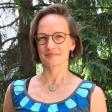Keynotes
Towards multispecies food sovereignty – relational futures at the land-sea interface
- Outline
In the face of multiple social and ecological crises, farmers and rural communities seek food sovereignty as a means of ensuring a livable future. In an era of climate change, however, all species with whom we co-inhabit the landscape must navigate livable futures in relation to one another, as well as the shifting climactic conditions. In this talk I bring into conversation some insights from my work with organic farmers in Latvia and Costa Rica with my current research with small scale coastal fishers on the Baltic Sea coast. In my book Organic Sovereignties, I explored how farmers negotiated new relationships with their land, seeds, and each other, often in cooperation with other species in the landscape, as they carved out interstitial spaces of social sovereignties in the face of regionalization and globalization. The move from land to sea, however, illuminates crucial tensions that arise when we zoom in on the more-than-human dimensions of our understandings of food sovereignty. Fishers, although referred to in Latvia as “tillers of the sea,” are differently entwined in webs of interspecies relationships than farmers. They find themselves competing for declining fish stocks with growing populations of grey seals and invasive fish species like the round goby, who are also seeking new territories as they adapt to climate change. Each shift in food web dynamics reverberates through fishers’ social networks as they navigate EU fishing quotas, new technologies, marine conservation rules, and consumer relations in attempts to guarantee their livelihoods and lifeworlds. The talk will contemplate how this perspective shifts our understanding of adaptation, interdependence, and multispecies food sovereignty for liveable futures.
Residential Mobilities Between Urban and Rural Spaces: Experiences and Expectations for Livable Futures
- Outline
One of the drivers for rural transitions is demographic change, influenced by shifting patterns of residential mobility between urban and rural spaces. Although the motivations for residential mobility have been extensively analysed, they have been widely reduced to ‘rational’ triggers such as life course events or job opportunities. However, emerging research shows that residential location decisions are also influenced by personal preferences and values such as biographical experiences, economic and cultural resources, subjective perceptions, normative beliefs, and social embeddedness. Furthermore, these factors are also weighed against structural conditions, such as housing cost and availability.
To illustrate the importance of the lived experiences underlying residential location decisions – as well as their implications on the future development of rural areas – I will focus my talk on recent trends in internal migration between urban and rural areas in Germany. For many years, German rural areas have been characterized by out-migration. However, since the mid-2010s, migration patterns have been undergoing a complex and multifaceted transformation process, with an overall shift toward rural areas.
In my talk, I aim to systematically pursue the idea of urban-rural migration as a complex and contingent decision that is driven by both structural factors and personal preferences. For this, I will address the following questions: What experiences underpin households’ reasons for migrating to and from rural areas? What images and expectations of ‘urban’ and ‘rural’ living do people draw on when making their residential location decision? Which chances and challenges for rural futures can be derived from such narratives?
Seeking refuge in the future: a tale of fictions and frictions
- Outline
In today’s Europe, amidst rising global authoritarianism, policymakers are betting on the rapid digitalisation of agriculture to address compounded crises. Framed by narratives of scarcity, visions of ‘connected’ rural areas, smart irrigation systems, self-driving tractors, precision spraying, and gene-edited, drought-resistant crops promise to deliver competitive and resilient food systems. Though most of these technologies are not fully developed, fraught with contradictions, and prohibitively costly, sociotechnical imaginaries of smart farming are currently re-defining critical strategic agendas.
The tension between the envisioned role of biodigital technologies and current realities calls for a deeper understanding of how Big Tech´s involvement in agriculture might further constrain possible futures. It also begs the question of what it means to invoke the future when studying food and agriculture. Feminist writers such as Ursula Le Guin and Octavia Butler seized the power of science fiction to critique entrenched social orders, mores and politics. Drawing from these and other compelling thought-experiments, how can one engage with agricultural futures in ways that resist the politics of fear and salvation? In other words, how to do the work of hesitation, radical imagination and reclaiming hope to open up political possibilities for ‘other worlds’?




